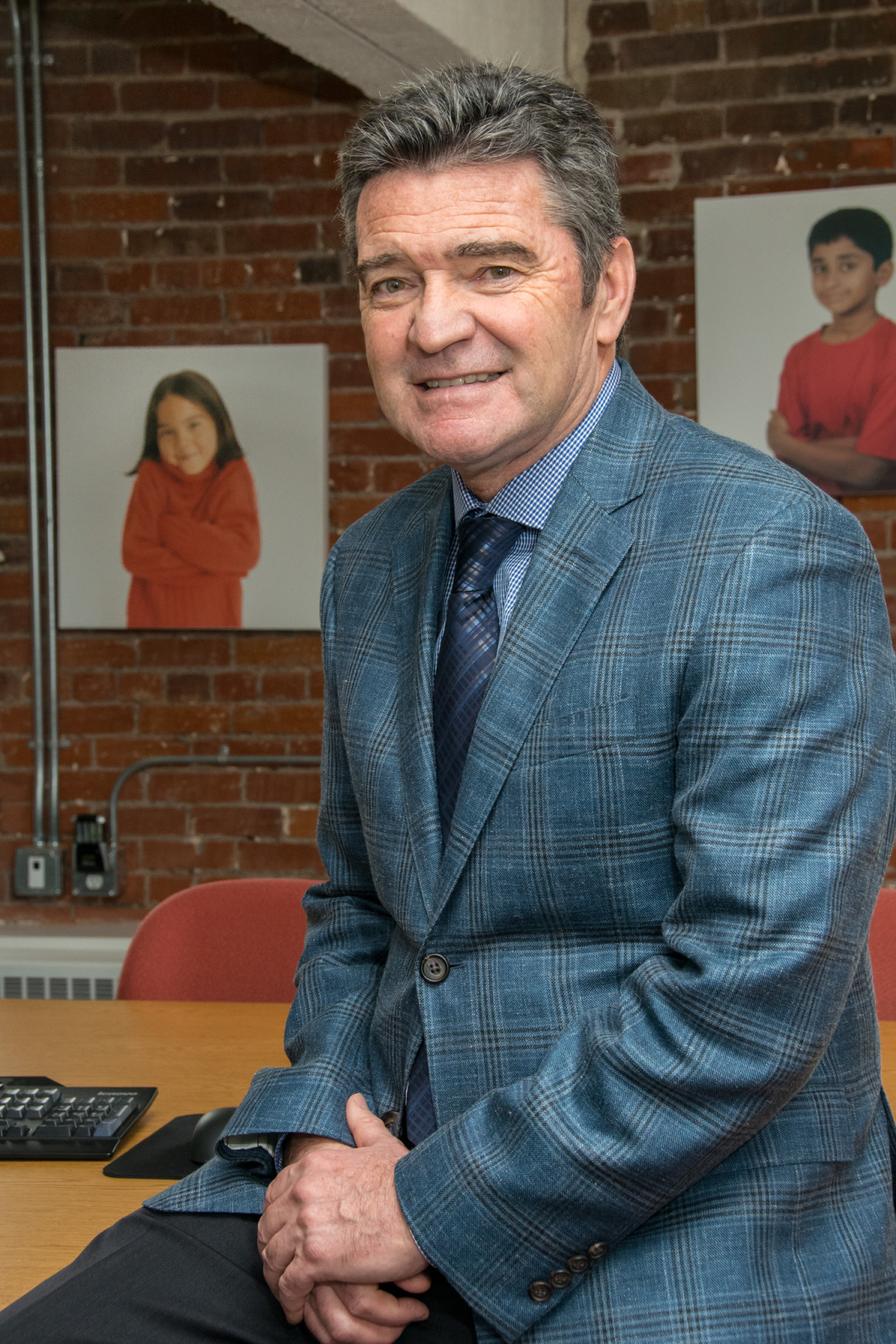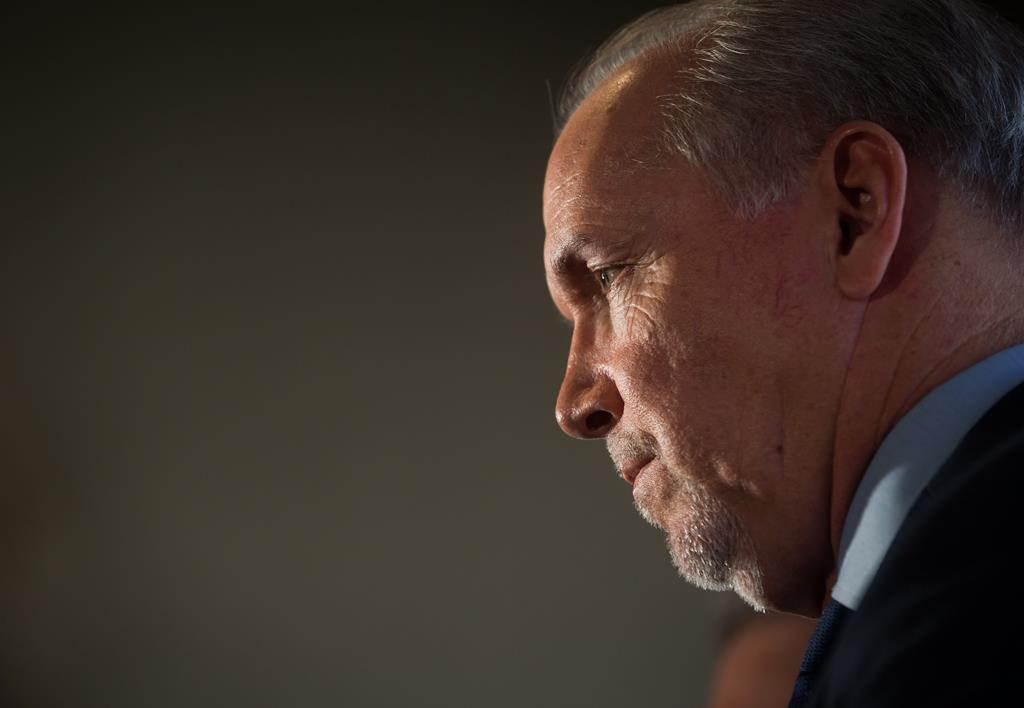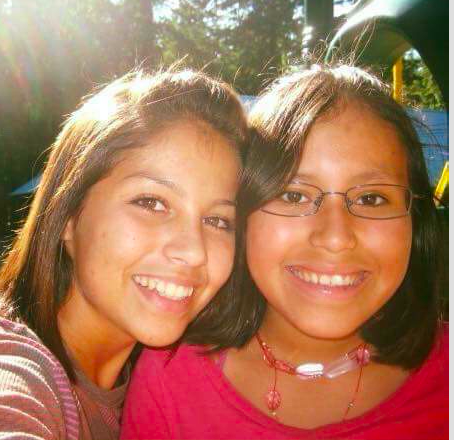Support strong Canadian climate journalism for 2025
Santanna Scott-Huntinghawk died last November, just months after she aged out of foster care, alone in a tent in a small wooded area just off a busy street in Surrey.
She was only 19 years old.
Her sister, Savannah Scott, 24, says the family has been told Santanna's death was caused by fentanyl, an accidental overdose after years of regular drug use.
Santanna’s heartbreaking story is still very relevant today because, although B.C. has a new NDP government that has talked a good talk about desperately needed improvements to child welfare, there's little hard evidence that real change is coming.
Santanna's life is symbolic of so many issues that British Columbia is wrestling with: housing affordability, the opioid crisis, poverty, problems in the child welfare system, poor education outcomes for Aboriginal children, and the need for better mental health care. Government action on any one of these files might have helped Santanna, but now it’s too late.
But it’s not too late to help other kids dealing with the same issues, and that’s what Savannah hopes to achieve by speaking out about her sister’s death.
More than half of B.C.’s approximately 7,500 foster children are Aboriginal, although they make up less than 10 per cent of the population. Foster children struggle to graduate high school, and often end up on welfare or homeless after their support is cut off on their 19th birthday. There have been several high-profile deaths of young people, including Alex Gervais, who jumped from a hotel room window just before he turned 19, and Paige Gauchier, who died of a drug overdose just after hers.
In the legislature on Tuesday, Katrine Conroy, the new minister of children and families, talked about her own four children and said most people are not ready to fend for themselves at 19.
“I can't imagine anyone in this room that is a parent saying to their kids at 19, ‘See ya later; have a good life,’ and never provide support again,” she told the house. “So as a ministry, we need to ensure that kind of support is available for all of the young people in our care as well.”
It’s an issue the NDP has promised to address.
The opioid crisis is affecting foster children – B.C.’s Representative for Children and Youth’s office provided me with figures that show the number of substance-related injuries for children in care is climbing. The B.C. Coroner’s Service found that the number of illicit drug overdose deaths for those aged 10 to 18 increased 140 per cent from 2015 to 2016.
Savannah said that when her sister had a stable home and was off drugs, she did really well at school, passing two grades in one year. But she struggled with feelings of abandonment, especially when the four siblings were split up.
The kids were taken into foster care when Savannah was 11 and her mom, who is from the Swan Lake First Nation, was hospitalized. Savannah says the family was living in poverty.
“She wasn’t able to take care of us and we were missing school and that’s how the ministry got involved. It was really bad timing all around,” Savannah told me.
Santanna’s mental health wasn’t good, Savannah said.

No new money to keep kids out of care
Just a week before Santanna’s death, Grand Chief Ed John released a report about Indigenous child welfare where he made many recommendations for reform, mostly focused on reducing the need for First Nations children to go into foster care at all, and increasing support for families to stay together. There was no money allocated in the NDP budget update to help implement his recommendations, although the NDP has promised to do so. The Ministry of Children and Families did get a $109-milion budget increase in February.
MCFD Minister Conroy said in a statement that her mandate letter calls for more funding for foster children who are becoming adults.
“We need to do better by our foster kids who are moving into adulthood," Conroy said. "Tuition is now free for all youth who have been in care and I will be working with my colleagues around the Cabinet table to develop enhanced supports for them in the coming months.”
Bernard Richard, B.C.’s Representative for Children and Youth, told me he likes what he hears from the new government about implementing both the Truth and Reconciliation Commission’s calls to action and the Ed John recommendations, but not what he hears on the ground.
“It just doesn’t jive for me, and it raises concerns,” Richard said. “There is no new money – strong commitments – but I worry that the words in the budget won’t translate into funds where they are needed.
“I will hold their feet to the fire.”
Savannah says she wishes her family had been given more support so she and her siblings weren't taken from their family home.
“They didn’t even give my mom the option, or the chance to prove herself. Yes, she was in and out of the hospital and stuff, but maybe there was a relative who could have come and stayed with us,” she said. “That’s the only thing (Santanna) ever wanted, was to have all of us be back together again.”

Government makes lots of promises, few detailed plans
So far, the new NDP government has made a lot of promises, but how they're going to fulfil them remains unclear.
The budget adds $322 million to deal with the fentanyl crisis and $114 million to address caseload issues for social workers. That's a start.
The government has also increased the province’s welfare and disability amounts by $100 a month and doubled the amount that people on income assistance and disability assistance can earn before their benefits are clawed back.
The government created a new ministry, mental health and addictions, but Richard is concerned the ministry’s budget won’t be adequate to help and that the new ministry might just create more bureaucracy.
“Was this something that sounded good to include in a throne speech while we’re dealing with an opioid crisis? I hope that it’s more than that, but to date I’ve not seen any evidence of that,” Richard said.
The one direct action that will help former foster kids is that they will now be eligible for free tuition at all 25 of British Columbia’s public post-secondary schools, up to age 26.
Free tuition wouldn’t have helped Santanna. She wasn’t nearly ready to go to university, which requires graduation from high school, a safe and secure home, enough money to pay for textbooks and living expenses, and the stability to plan ahead, set goals and manage life as a student.
Free tuition is an excellent move, one that B.C.’s former child and youth representative Mary Ellen Turpel-Lafond pushed hard to achieve. But it’s not enough for many former foster kids who end up on welfare or homeless when they lose support at 19. And it’s not enough to help the thousands of kids who are still in foster care in B.C., or to prevent others from being taken into care. Improving child welfare in B.C. is going to take determination, money and persistence by the NDP government.
The NDP promised to increase the budget for a support program for people who have aged out of care called by $10 million a year, however this wasn’t in the budget update. The program, called Agreements with Young Adults, pays some living expenses while a former foster child goes to school or is enrolled in a training program.
The Green Party promised in its election campaign to Introduce a basic income support for youth aged 18 to 24 who are transitioning out of foster care.
The NDP government said earlier this month when announcing the expansion of the tuition waivers that this will be the first of a number of announcements helping kids who have aged out of care. The news release said a “comprehensive program” would be part of next year’s budget announcement.
Given the power-sharing agreement between the two parties, it is likely the final outcome will land somewhere between the two approaches.
That can only be good news for the thousands of young people in B.C. like Savannah.
Tracy Sherlock will be writing about the B.C. government each week, on Wednesdays. Contact her with news tips at [email protected].
This story has been updated to show that Alex Gervais jumped, rather than fell, from a hotel room window.



Comments
Please get her name right!!!! The first sentence contradicts the header.
Thank you for pointing out the error - it has been corrected.
Please get your facts straight, Alex Gervais committed suicide by JUMPING through a window after having his step mom TAKEN from him and prevented from reuniting with his extended family. He was placed with a for profit residential agency that was regularly stealing money for food and clothing from him and eventually placed with a contractor that was a drug dealing criminal and abandoned in a motel. Read his story and report the facts accurately: https://www.rcybc.ca/sites/default/files/documents/pdf/reports_publicat…
You're right and I've corrected the story. Thanks for reading.